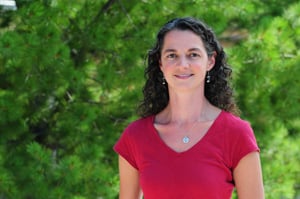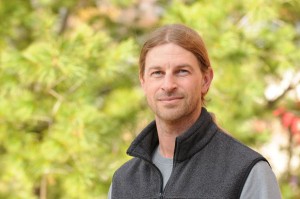Professor David Flaspohler is writing a blog on his work for the New York Times feature called “Scientist at Work.” His first post was published on May 23.

Assistant Professor Michael Falkowski has several new projects that have recently been funded.
Fuel Consumption and Carbon cycling in northern peatland ecosystems: Understanding vulnerability to burning, fuel consumption, and emissions via remote sensing of fuel moisture and radiative energy.
Program: NASA Terrestrial Ecology
PI: Michael Falkowski
Michigan Tech CoPIs: Evan Kane, Eugene Levin
MTRI CoPIs: Mary Ellen Miller, Nancy French, and Laura Bourgeau-Chavez|
Collaborating Institutions: Rochester Institute of Technology; University of Idaho; Florida Atlantic University
Amount: ~$650,000
Enhancing Tools and Geospatial Data to Support Operational Forest Management > and Regional Forest Planning in the Face of Climate Change
Program: NASA New Investigator Program in Earth Science
Title: Enhancing Tools and Geospatial Data to Support Operational Forest Management and Regional Forest Planning in the Face of Climate Change
PI: Michael Falkowski
Michigan Tech CoPIs: Linda Nagel; Robert Froese
Collaborating Institutions: US Forest Service Rocky Mountain Research Station; Portland State University; University of Idaho
Amount: ~$350,000
Remote sensing of conifer and mesquite encroachment into lesser prairie-chicken habitats
Agency: Natural Resource Conservation Service
PI: Michael Falkowski
Michigan Tech CoPIs: Joseph Bump
Amount $95,000
Congratulations to the following faculty who were recently approved for promotion and tenure by Michigan Tech’s Board of Control :
Andy Burton, promoted to Professor with tenure
Rod Chimner, promoted to Associate Professor with tenure
Oliver Gailing, promoted to Associate Professor with tenure
Audrey Mayer, promoted to Associate Professor with tenure
Chris Webster, promoted to Professor (already tenured)
Two of the ten most downloaded papers in 2011 at Journal of Forestry were fromthe School of Forest Resources and Environmental Sciene:
Woody Invaders and the Challenges They Pose to Forest Ecosystems in the Eastern United States (Vol. 104, No. 7)
and
Promoting Ecological Sustainability in Woody Biomass Harvesting (Vol. 108, No. 1).
Professor Chris Webster is an author on each paper.
See all 10 downloads at:
http://www.safnet.org/publications/jof/mostdownloaded.cfm
Joins Conservation District as Education Coordinator
Jessica holds a Ph.D. in Forest Science from Michigan Technological University, a M.S. in Entomology from Virginia Polytechnic Institute & State University and a B.S. in Natural Resources from The Ohio State University.
She has broad training in environmental science, aquatic ecology, agriculture, entomology and forest science. She has also gained a great deal of education experience, teaching in both formal and informal settings from toddlers to adults. She has developed curriculum, managed after-school programs, taught environmental education in Bulgaria for two years, coordinated summer leadership camps and taught at the college level at Michigan Technological University and Northwestern Michigan College.While Jessica grew up in the Detroit area, she has always had a love of northern Michigan. She vacationed every summer in the Grand Traverse region, and was delighted to make Traverse City her permanent home in 2010. She has worked with the Conservation District’s Invasive Species Network for the past year and is currently Adjunct Faculty at Northwestern Michigan College.
Jessica is excited to join the Conservation District team in this new capacity as the Education Coordinator, and is looking forward to developing, delivering and providing for the ongoing vitality of environmental education programs and exhibits at the Boardman River Nature Center and throughout the community.
Jessica can be reached at jbeachy@gtcd.org or 231.941.0960 ext. 24.
Research Assistant Professor Yinan Yuan and Assistant Professor Hairong Wei have received $149,888 from the US Department of Agriculture, National Institute of Food and Agriculture, for a project, Systematic Identification and Characterization of Overlapping Sense/Antisense Gene Loci in Populus Genome.
Assistant Professor Audrey Mayer presented work on information theory and sustainable landscapes in a symposium on Coupled Human And Natural Systems (CHANS) at a meeting of the International Association of Landscape Ecology in Newport, Rhode Island, this week. Azad Henareh Khalyani, a PhD candidate in forest science, presented a poster on his remote-sensing work on a protected area in northwestern Iran.


